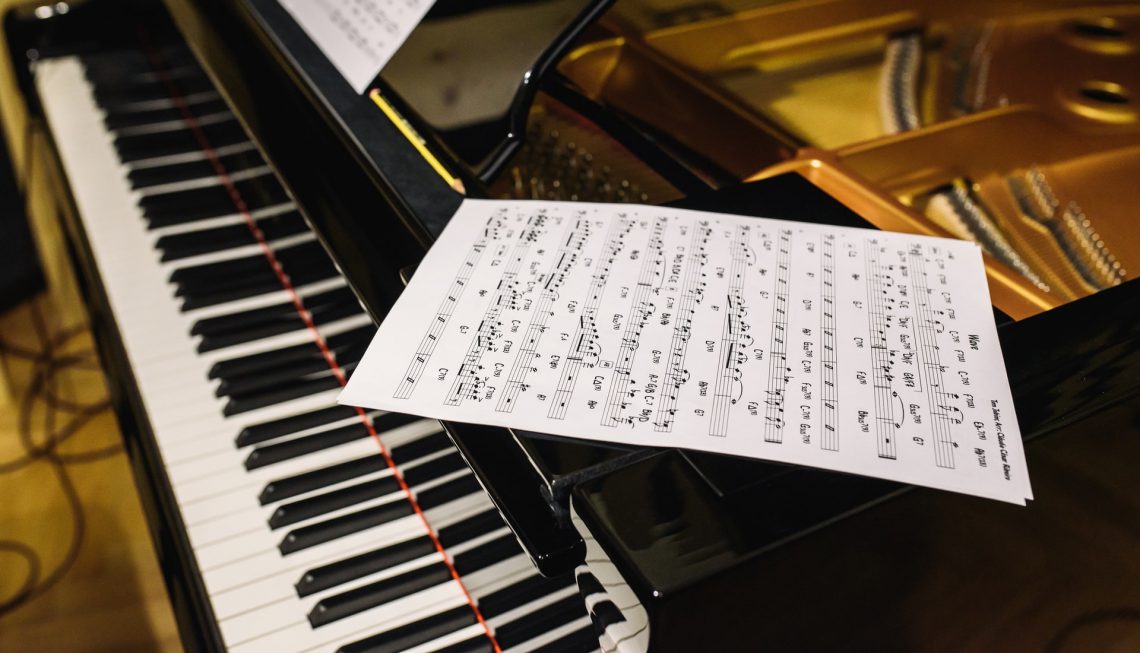
Song title naming conventions
Have you ever wondered why nobody knows the composers and producers of pop music? Some weeks ago, I started thinking about naming conventions and realized, that it’s one possible cause for the invisibility of certain roles and feeding stereotypes.
Talking with a friend about classical music, we noticed, that the naming convention is completely different from pop music. You may talk about sonatas of Frédéric Chopin or concerts from Ludwig van Beethoven. In pop music, you talk about a song by Taylor Swift or Ed Sheeran. Why are we mixing composers and performing artists in our everyday language?
Pop music naming convention
Everybody knows this pop music naming convention that is centred around the performing artist.
Performer feat. Guest – Title (Remixer Version)
In our everyday language, it is not clear, if “Taylor Swift’s song” is a song she has sung or wrote. Only our context or background knowledge says, that she sings, composes, writes and performs most of her songs. If we don’t know, we consider the artist name to be the composers and songwriters, which is not always the case. Just remember Katy Perry’s mega hit “I kissed a girl”. Did you know that it has been written by Max Martin, Cathy Dennis and Dr. Luke? I bet most of you didn’t.
In reality, songwriter teams write tons of songs for a performing artist, then they team up with engineers, session musicians and producers to record it together with the artist. Sometimes, the label or the artist has a rough idea about the next song, and they team up to finish. However, in the title the performing artist is first, sometimes featuring a special guest, who added a solo, rap, whatever or just shows up in the video. You can read the songwriters and producers in the booklet, but the session musicians and engineers are not always listed. Sometimes because they’re part of the studio, so the studio is credited. Even then, you cannot be 100% sure if the data is correct, cause there are also ghostwriters and ghost producers.
Classical music naming conventions
Doing a little research, I figured out that there are different numbering systems, like the opus number (op.) or Köchel catalogue (KV). Basically musicologists, that listened to several pieces of these composers and ordered them chronologically. You may come titles like this: “Wolfgang Amadeus Mozart – Symphony No.4 in D major, KV 19” which can be read as:
Composer – Symphony / Concerto, Catalogue No.
Even if another orchestra or soloist performs this piece, it will still be a Mozart played by The Vienna Symphony and not “The Vienna Symphony – Symphony in D major”. Only a few pieces have titles. Thus, these song naming conventions are more about the composer than the performing artist.
My naming convention
As a composer and songwriter, I never felt comfortable with the pop music naming convention, but I also don’t want to think about organizing my songs in numbers. In my honest opinion, everybody who has been involved as a songwriter should be part of the title. Thus, I favour
Songwriter feat. Performer – Title (Remixer Version)
The first name is reserved for the person who started the project or gave the most input. A song can have multiple songwriters or composers. The feature usually goes to soloists or artists, who recorded and added their mojo. In a full band recording, I’d like to feature all people involved, but I just can’t. So I decided to give the feature to the vocalist, because they are the most prominent part. Nevertheless, I take care, that ALL people are explicitly listed in the full credits on the website and booklet both.
What is your opinion?
Have you ever made up your mind how to solve that problem of composers, performing artists and further roles?
Which convention would you use – and why?




